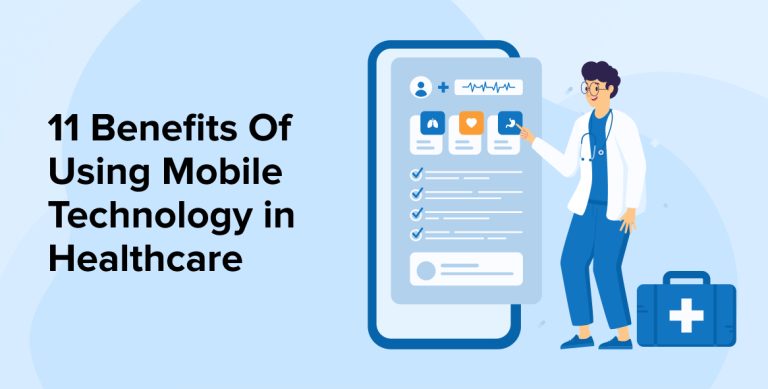
Healthcare institutions are contemplating the use of mobile health apps to provide superior services across geographical borders. In past years, mobile apps have accelerated their growth as they reinvent the environment of the healthcare industry. In 2021, global development in digital health reached an all-time peak of $57.2 billion, driven by the increasing demand for digital solutions and delivery methods for patients during the epidemic, says Statista.
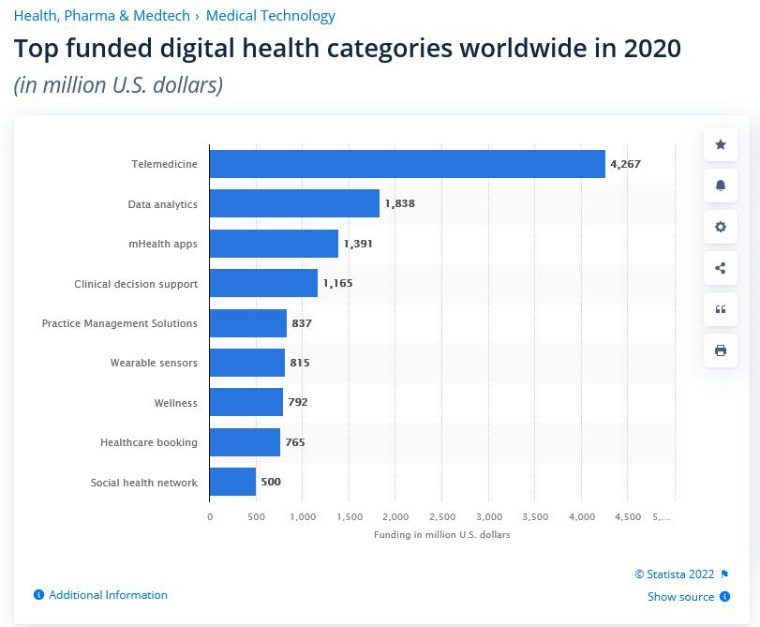
They are critical forerunners in extending the scope of the clinical and healthcare sectors by enhancing productivity, connectivity, and the level of care services.
In this article, we’ll discuss the benefits of mobile health apps and why it’s a reasonable decision to invest in healthcare software development to provide better patient-centric treatment.
1. Benefits of Mobile Healthcare Application
Since the increased practice of mobile health apps in different healthcare sectors, there has been a rise in the overall medical mobile app market. According to research, the mHealth Market was worth over USD 56 billion in 2020 and is expected to increase at a CAGR of more than 30% between 2021 and 2030. Also, mhealth apps business is predicted to reach a value of more than $189 billion by 2025, says Statista.
Here are some of the preliminary advantages of health apps that have played great roles in the healthcare sector:
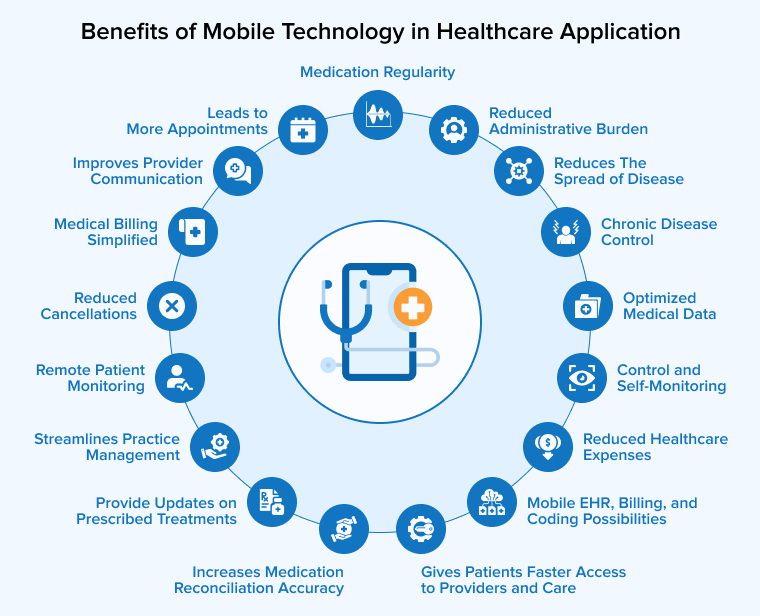
1.1 Control and Self-Monitoring
Monitoring gadgets as a part of healthcare concern assist in managing and monitoring pulse rate, activity level, blood pressure level, nutrition, anxiety, and the duration of sleep at night. Thus, a comprehensive assessment of patients’ health conditions and well-being is offered. Vital signs can be monitored in cases of health vulnerability.

As a result, serious occurrences of unexpected demise are prevented in hypertension, obese, and inactive individuals. If behavior changes are advocated, they can result in a significantly improved condition of life.
According to the milestone of advances, it was projected that in the not-too-distant future, residents would be able to watch patients’ houses. Additionally, they will have channels of communication amongst clinicians for the purpose of medical data analysis.
1.2 Chronic Disease Control
Chronic diseases account for 7 out of 10 U.S. fatalities, are the major source of impairment, and chronic disease patients are the most regular users of healthcare services.
Unlike traditional care settings, MHealth apps provide chronic disease management through constant and protracted analyses for the purpose of improving and controlling the image of degenerative illnesses such as cardiac problems, epileptic, bronchitis, and diabetes mellitus (DM) issues, all of which produce significant costs for the state.
Additionally, persons with diabetes mellitus must constantly make choices and be mindful of their prescriptions. It is vital to have command over the number of insulin units required when blood sugar levels alter and also during meal limitations.
As a consequence, this monitoring may be performed utilizing standardized instruments that promote treatment adherence and glucose management.
1.3 Improves Provider Communication
Interacting with teammates, fellow employees, and building patient engagement is difficult in the healthcare industry when most physicians have full appointment calendars, lengthy days, and various facility coverage obligations. According to a study conducted in the late 1990s, poor communication was responsible for 44000 – 98000 patients deaths per year in American hospitals.
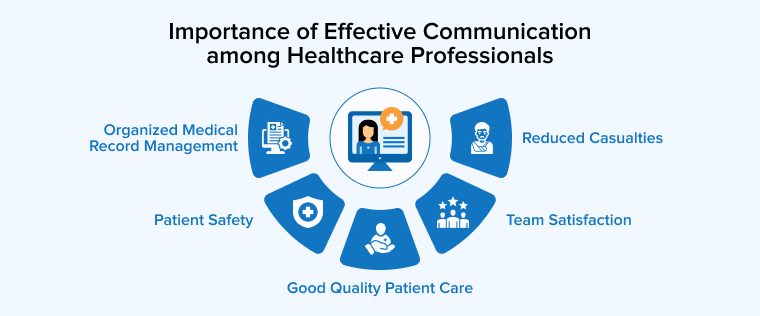
Through encrypted emailing and texts, mobile health record accessibility, and mobile telephone conversations, mobile health technology enhances the capacity to communicate throughout the healthcare system and with recommending doctors, healthcare providers, and office personnel.
Additionally, such mobile applications may be leveraged to notify medical professionals of patients who require medical treatment or have been hospitalized. The software enables healthcare professionals to access a patient’s data of past health status, including their disorders and doctors/hospitals that treated them- allowing them to better synchronize their treatment during transitioning between environments.
With the help of such mobile health apps, providers receive real-time notifications on their smartphone on patient Emergency entries, admittance, releases, and movements. Additionally, medical checklists are activated in response to alarms, which helps standardize and simplify care on a case-by-case basis.
1.4 Reduced Cancellations
One of the primary benefits of patient portals on mobile devices is that the reminder function helps patients keep their appointments, saving the healthcare industry money on refunds and maximizing the use of caretaker time.
1.5 Remote Patient Monitoring


Remote patient monitoring is a type of daycare and telemedicine that allows people to acquire, update, or routinely retrieve medical information and transfer it to clinical staff using handheld mobile health apps and digital mobile health technology.
Here’s a graphical representation of Remote patient monitoring users in the US during 2020-2025.
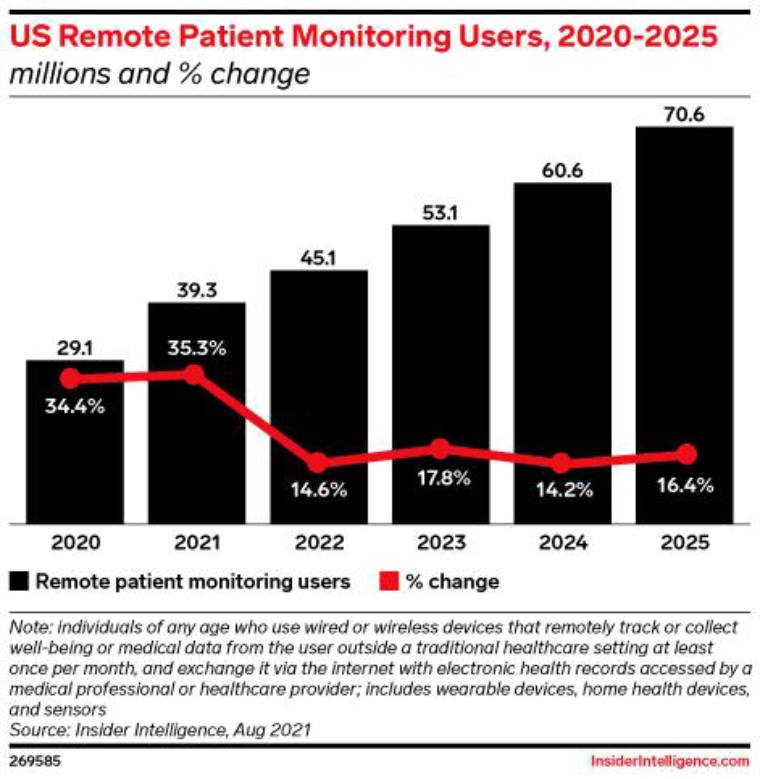
By 2022, 45.1 million US patients will use RPM tools
The capacity to monitor patient status during consultations and alert a doctor or healthcare organizations whenever a patient’s data puts them in danger is a significant advancement in care management. Without mobile devices and mobile health technologies – more specifically, wearables such as smartwatches, Fitbit, and bracelets – constant recording and analysis of this information would be difficult, if not impossible.
Remote patient monitoring is often typically used to assist patients in managing a chronic disease or to verify they are adhering to medical exit guidelines and appropriately ingesting their prescriptions. The following are the kinds of data generated by mobile devices:
- Monitors for bodyweight, blood pressure, and respiratory rate
- Meters for sugar
- Trackers for dietary information
Remote patient monitoring received a lift during 2019 once the Centers of Medicare and Medicaid Services (CMS) added fresh categories and approved programs for such growing services, enabling health care professionals and healthcare organizations to generate significant revenue sources.
1.6 Reduced Healthcare Expenses
Health management apps have been shown to significantly cut costs for healthcare organizations and patients. Appropriate medicine, devotion to wellness via fitness devices, and other measures help maintain the patient’s condition in control and prevent re-visits. Medical institutions benefit from lower operational and practical visit costs.
1.7 Reduced Administrative Burden
Documentation, meeting follow-ups, and patient medical records administration are all duties that need an additional set of eyes inside the medical business. Such fitness tasks are made possible by the intelligent innovation inherent in health apps. This improves the healthcare service provider instantly by automating operations.
1.8 Medical Billing Simplified
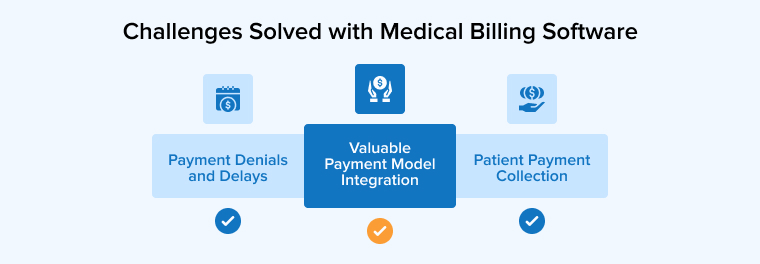
Numerous aspects of clinical invoicing and clinical information are computerized via the use of mhealth solutions. This minimizes the possibility of human mistakes resulting in refused or declined requests. Rapid reimbursement benefits the medical organization’s bottom line.
1.9 Increases Medication Reconciliation Accuracy
It is a well-known fact that many people have difficulty recalling the brands and quantities of the drugs they are currently consuming. This is especially concerning for polypharmacy patients, the aged, and other high-risk individuals.
The reality is that several patients (and their healthcare provider or relatives) are unable to reliably recollect their prescription list while speaking with a doctor, ED admission or hospital admission caregiver, or other professional and this places the patient in serious danger.
When doctors are unsure of which drugs a person is taking, the possibility of drug-drug combinations increases. Additionally, adverse drug responses can happen when a patient is brought to a hospital without being given a medication they must take but failed to notify.
However, such healthcare mobile apps are trying to close this information gap in order to enhance patient safety and drug management with better health outcomes. These mobile health solutions deliver healthcare services in a way to provide doctors and the healthcare industry with a bird’s-eye perspective of all drugs supplied to a patient – as well as grab and refill data, dose adjustments, and more.
1.10 Medication Regularity
This is an additional virtue of the reminder function in mobile apps, as patients are prompted to begin taking their dosage on a constant basis. This is one of the countless benefits of mobile health that maximizes the patient’s wellness advantages and the healthcare organization’s value.
1.11 Optimized Medical Data
The migration of clinical mHealth apps data ensures that the patient’s healthcare data is securely stored on a stable network for simple access and modification. mHealth security has evolved dramatically in recent years, enabling fast data analytics and medical payments.
1.12 Mobile Apps Keep Users On Top of Their Prescribed Treatment
To take advantage of treatment compliance, healthcare service providers have their own mobile applications that play a significant role in the patient’s lives. It comes with features like a set-up reminder that informs the patients when to have their medicines, renew prescriptions, book a recurring appointment, and more. Besides this, the family members and caregivers of the patients can keep a check on the health conditions of the patients. These applications can also control the medical records of the patients which can be helpful for future treatments.
1.13 Digital Platforms Streamline Practice Management and Increase Efficiency
Digital healthcare platforms can improve practice management and create a perfect workflow for healthcare institutes. These applications can help doctors access their patients’ data, accelerate response time, collaborate with other physicians, and access patient’s data whenever required. Besides this, digital medical platforms can also help in collecting patients’ data like signatures and document scans, digitalizing all the records, coordinating with the insurance providers, and more.
1.14 Gives Patients Faster Access to Providers and Care
When patients start using digital applications for medical guidance and knowledge, they get easy access to healthcare provider organizations, unlike the traditional telephonic approach. Besides this, mobile health applications also enable patients to quickly book an appointment, message their healthcare providers and have 24/7 access to telemedicine. This is the most convenient way to get the health checkups done.
1.15 Leads to More Appointments
Though mHealth has been a growing trend for the last few years, it got a huge boost during the pandemic. Since 2020 it has become an essential source to get health checkups done. Telemedicine has helped patients and health care providers bridge the gap and reduce the number of no-shows for doctors. Besides this, as attending online appointments is very easy and convenient, doctors are observing leads in it.
1.16 Reduces The Spread of Disease
With telehealth applications and websites, patients have started getting primary health checkups done through digital platforms which has reduced the exposure to vulnerabilities. Besides this, the spread of viral flu and other diseases has reduced to a certain level and people’s healing process time has also improved.
1.17 Mobile EHR, Billing, and Coding Possibilities
For every healthcare provider organization, one of the biggest benefits is that they get an easy-to-access and manage EHR or billing system that can be used by coders and billers. It also helps patients to securely pay their bills, get access to their files for insurance and get the proper reimbursement with almost no chance of denial.
2. Final Thoughts
To summarize, the growth of digital applications in the healthcare business has been phenomenal and also increased overall healthcare professionals productivity. Thus, engaging in mobile health technology will undoubtedly benefit your medical company’s revenue and credibility.
Though adapting to mobile health apps might be challenging due to the additional skills required in back-end programming and cybersecurity regulations. And, hopefully, by now, you understand and agree on why patient portals are critical for each healthcare system to effectively plan for the coming generations of interdisciplinary and integrative health care delivery.
TatvaSoft is a one-stop solution for your outsourcing healthcare software development requirements and can assist you in launching mHealth apps irrespective of your geography. We provide a range of customizable labor methods and possess a track history of successfully completed projects.
Are you interested in reaping the perks of mobile healthcare technology? Schedule appointments to explore your idea through us.


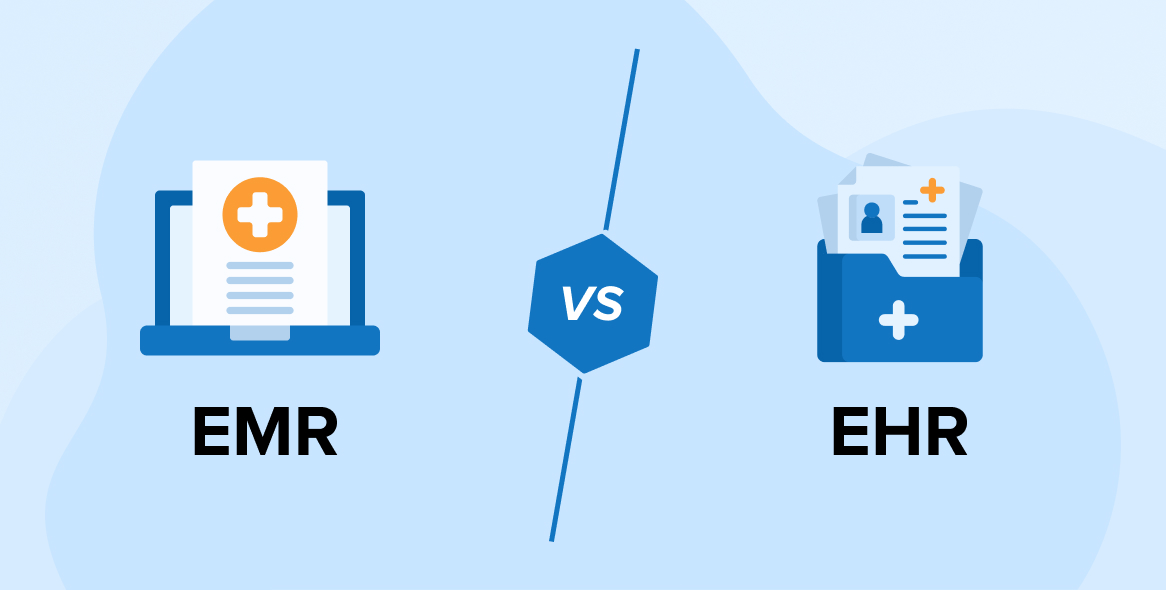
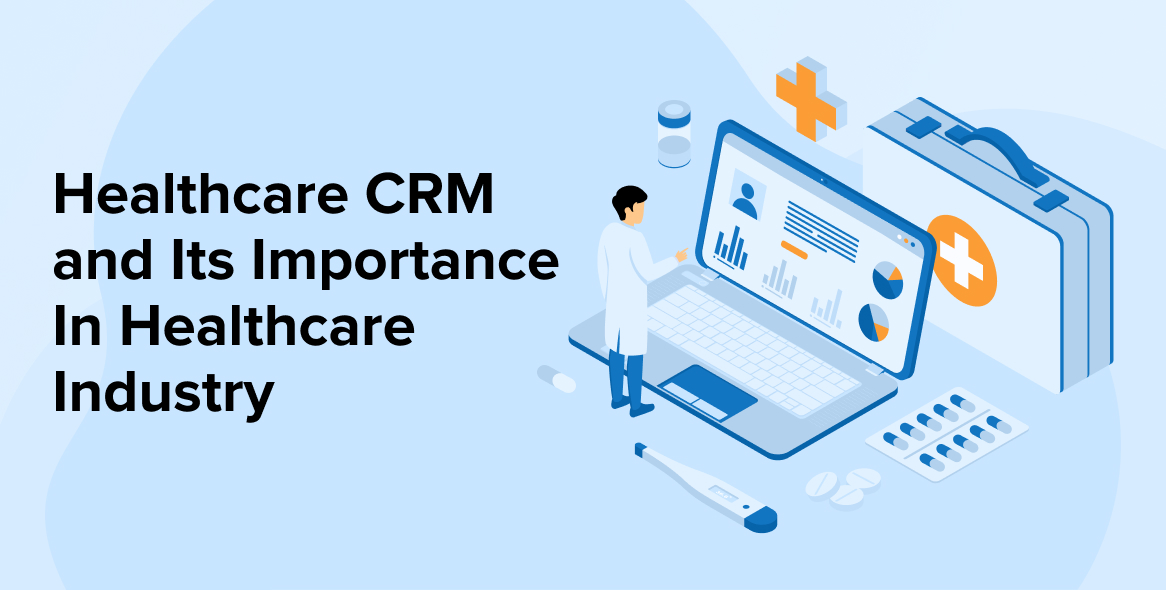
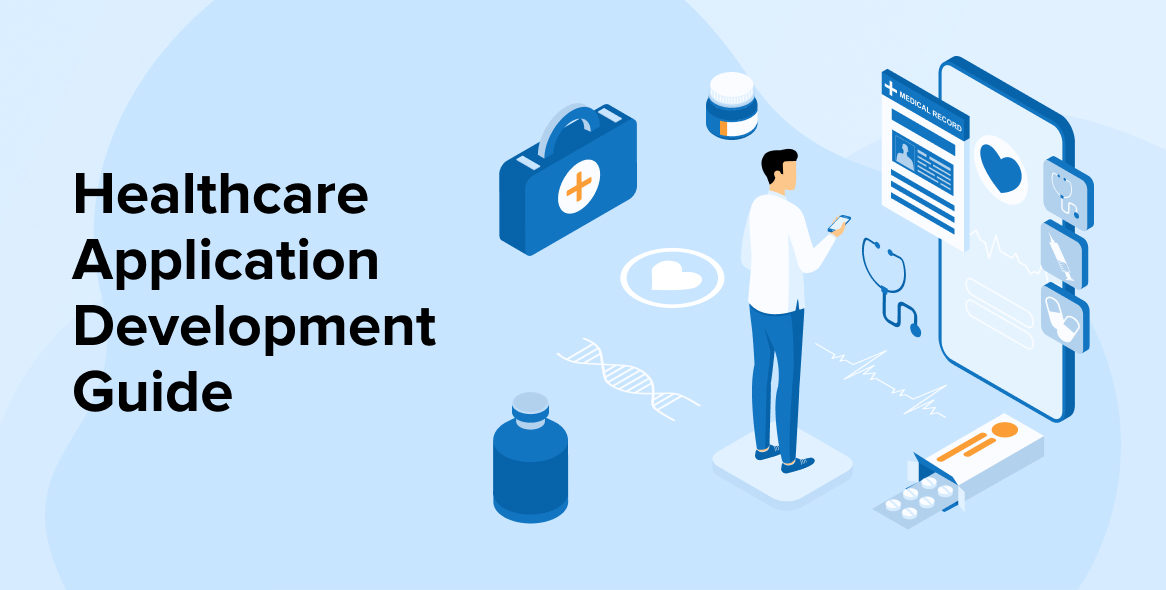

As someone who works in the healthcare industry, I found this blog to be informative and insightful on the role of mobile technology in healthcare. The blog covers important aspects such as patient engagement, telemedicine, and mobile apps, making it a valuable read for anyone.
As a healthcare professional, This article helps me a lot because it describes All the preliminary advantages of health apps that have played great roles in the healthcare sector and increased overall health care professionals productivity. Thanks for sharing!
The benefits of using mobile technology in healthcare are well explained in this article. After reading this article, I can say that mobile technology has the potential to revolutionise the healthcare industry. Thanks for sharing!
The article mentions that mobile healthcare applications can help with chronic disease management. This is a very important area, as chronic diseases are a major burden on the healthcare system today. Mobile health apps can help patients track their symptoms, medication adherence, and other important health information. This can lead to better disease management and improved patient outcomes. Thanks for sharing.
This is an article about the benefits of mobile technology in healthcare. Some important points from this article are that mobile technology can make healthcare more accessible and affordable, and it can also help patients take control of their own health. highly recommend!
This Blog highlights how mobile apps can empower patients, enhance communication between patients and providers, and promote medication adherence. Also mobile technology can contribute to cost reductions and streamlined administration in healthcare. Thanks for providing this valuable information.
The article outlines several initial benefits of mobile healthcare applications that have significantly impacted the healthcare industry. After reading the content all I can say is that embracing mobile health technology will unquestionably benefit medical company’s revenue and credibility.